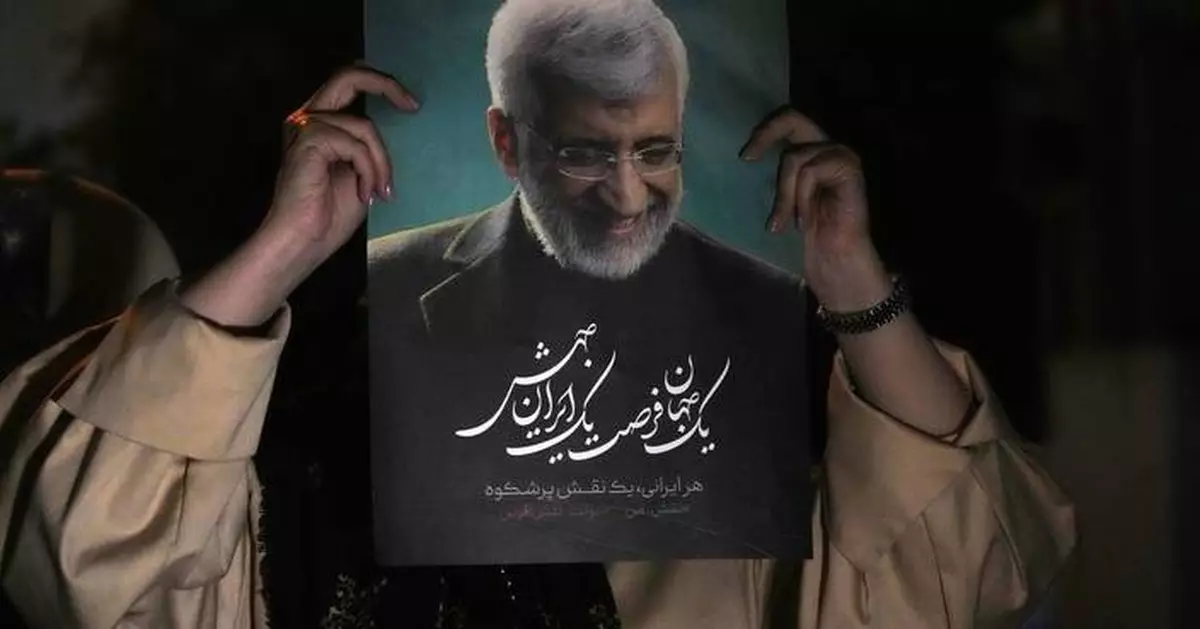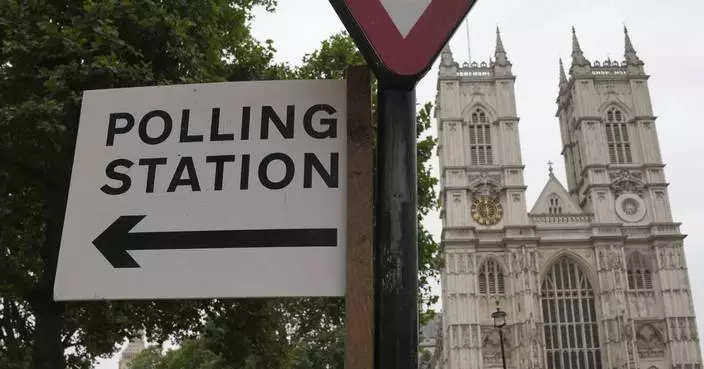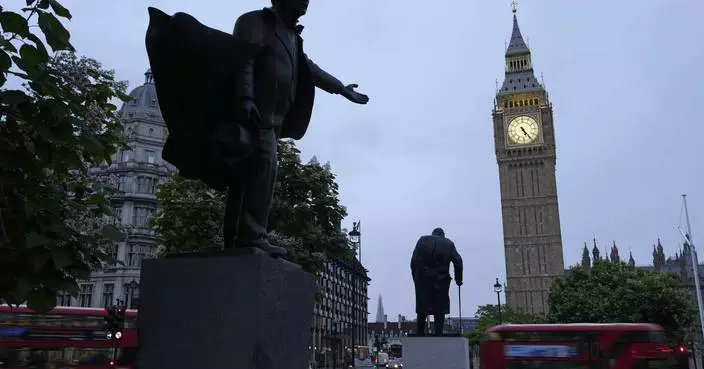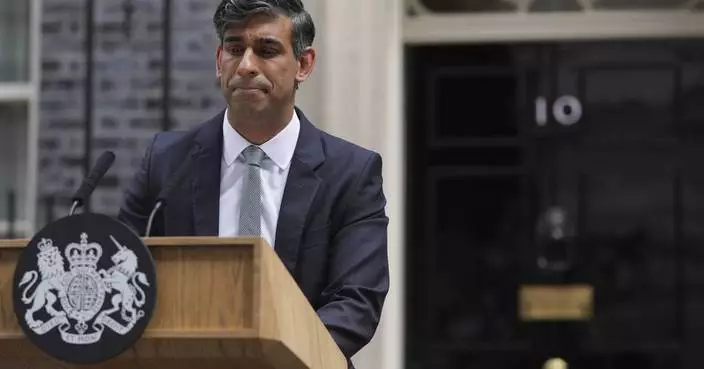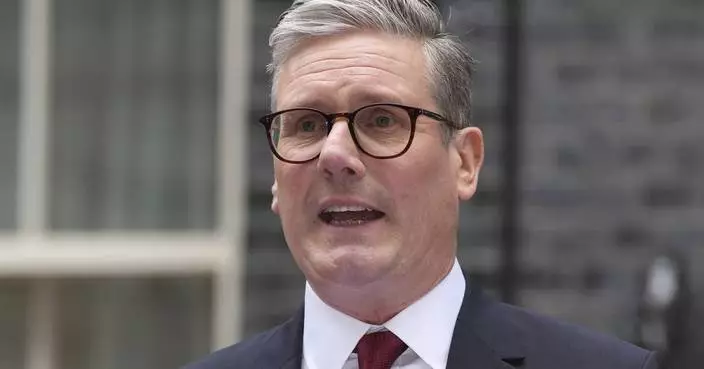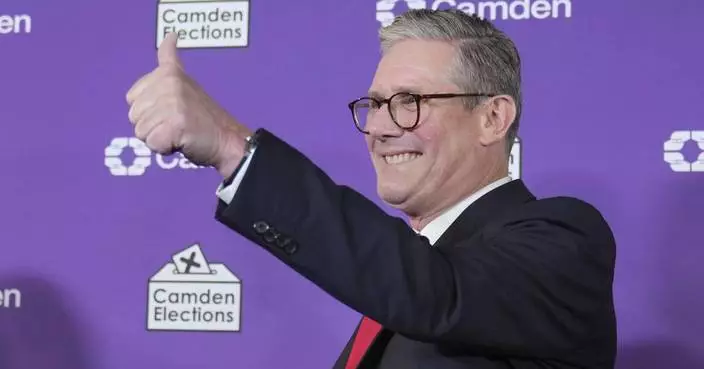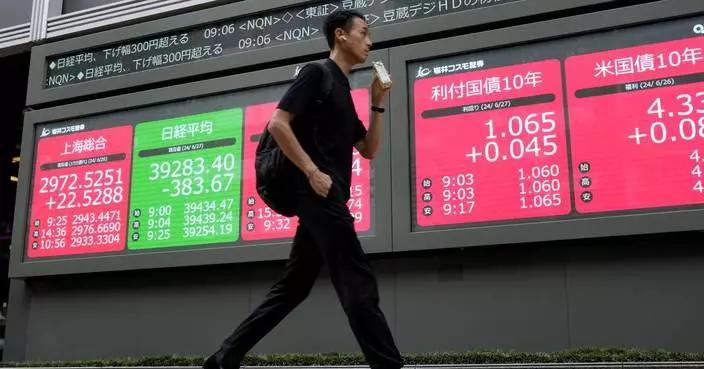DUBAI, United Arab Emirates (AP) — Hard-line Iranian presidential candidate Saeed Jalili may have been Tehran's top nuclear negotiator for years, but he won no plaudits from Western diplomats sitting across the table as he repeatedly lectured them on everything while offering nothing.
“As the weaving of Iranian carpets progresses in millimeter, precise, delicate and durable manner, God willing, this diplomatic process will also proceed in the same way,” Jalili said then.
Those hours of lecturing in 2008 stalled talks as hard-line President Mahmoud Ahmadinejad and Supreme Leader Ayatollah Ali Khamenei advanced the country's nuclear program. That put pressure on the West that eventually eased with Iran's 2015 nuclear deal with world powers, which lifted sanctions on the Islamic Republic.
Now Jalili, 58, stands on the precipice of being elected as Iran's next president as he faces a runoff election Friday against the little-known reformist Masoud Pezeshkian, a heart surgeon. With Iran's nuclear program enriching uranium at levels near-weapons grade, a win by Jalili may again see already-stalled negotiations freeze.
Meanwhile, Jalili's own hard-line vision for Iran — derided by opponents as being in the style of the Taliban — potentially risks inflaming a public still angry after the bloody security force crackdown that followed the demonstrations over the 2022 death of Mahsa Amini. She died in police custody after she was detained over allegedly improperly wearing the mandatory headscarf, or hijab.
Jalili, known for his shock of white hair and beard, is known as the “Living Martyr" after losing his right leg in combat at the age of 21 during the 1980s Iran-Iraq war. He was born Sept. 6, 1965, in the Shiite holy city of Mashhad, his Kurdish father a French teacher and a school principal and his mother an Azeri.
Jalili worked as a university professor with a doctorate before joining Iran's Foreign Ministry, working his way up to a top position before joining Iran's Supreme National Security Council and becoming the country's top nuclear negotiator under Ahmadinejad from 2007 to 2013.
He made an impression immediately on his Western counterparts, with then-negotiator, now-CIA director William Burns calling him “a true believer in the Iranian Revolution.”
“He could be stupefyingly opaque when he wanted to avoid straight answers, and this was certainly one of those occasions,” Burns recalled in one meeting. "He mentioned at one point that he still lectured part-time at Tehran University. I did not envy his students.”
An anonymous French diplomat quoted at the time referred to one round of Jalili’s negotiations as a “disaster.”
Another European Union diplomat offered a similar assessment in a 2008 U.S. diplomatic cable published by WikiLeaks.
“An EU official who attended Jalili’s private and public meetings that day was struck by his seeming inability or unwillingness to deviate from the same presentation or provide nuance, calling him ‘a true product of the Iranian Revolution,'" the cable said, not naming the diplomat.
Jalili later would be replaced after he came in a distant third in Iran's 2013 presidential election to the relatively moderate cleric Hassan Rouhani, himself a former nuclear negotiator. Rouhani's administration would secure the 2015 nuclear deal, which saw Iran drastically reduce the size and purity of its stockpile of enriched uranium in exchange for the lifting of economic sanctions.
Jalili strongly opposed the deal and formed what he described as a “shadow government” during the Rouhani years to try to undercut his efforts. Jalili also was endorsed in his 2013 run by the late hard-line Ayatollah Mohammad Taghi Mesbah Yazdi, who once wrote that Iran should not deprive itself of the right to produce “special weapons” — a veiled reference to nuclear weapons.
Iran long has insisted its nuclear program is for peaceful purposes.
However, U.N. inspectors and Western nations say Iran had an organized military nuclear program until 2003. In recent months, Iranian officials have increasingly made threats about Iran's ability to build a bomb if it wanted as it enriches uranium to 60% purity, a short, technical step to weapons-grade levels of 90%.
Meanwhile, advocates for Pezeshkian have described Jalili as potentially bringing hard-line policies akin to the Taliban if he's elected, something Jalili acknowledged in passing.
“Before the election results were even announced, we called 10 million or 9 million people Taliban?" Jalili said at a recent debate, referring to reformists' criticism of his policies. "Does this help?”
Jalili hasn't offered any real comment on how he'd handle the ongoing dispute over the hijab in Iranian society. But those in Jalili's campaign have been much more direct — calling for stricter punishment against those refusing to wear the mandatory headscarf. One once referred to uncovered women as being worse than a “whore.” Yet during his campaign, Jalili has been vague about how he'd enforce the law and has even posed for a selfie with a woman with a loose hijab, a moment captured in a news photo.
Jalili also has been endorsed by another fundamentalist ayatollah, Mohammad Mehdi Mirbagheri, who belongs to the Front of Islamic Revolution Stability, the far-right edge of hard-liners in the nation. The group, which backs Jalili, was behind a bill passed by Iran’s parliament that could impose 10-year prison sentences for hijab violations. It has yet to be approved by the country’s Guardian Council, a panel of clerics and jurists ultimately overseen by Khamenei.
“They want blocking and closures in everything, no matter the field," political analyst Mehrdad Khadir told The Associated Press. "It’s the same when it comes to the issue of women, internet or any other issue.”
Vahdat reported from Tehran, Iran. Nasser Karimi and Mehdi Fattahi in Tehran contributed to this report.
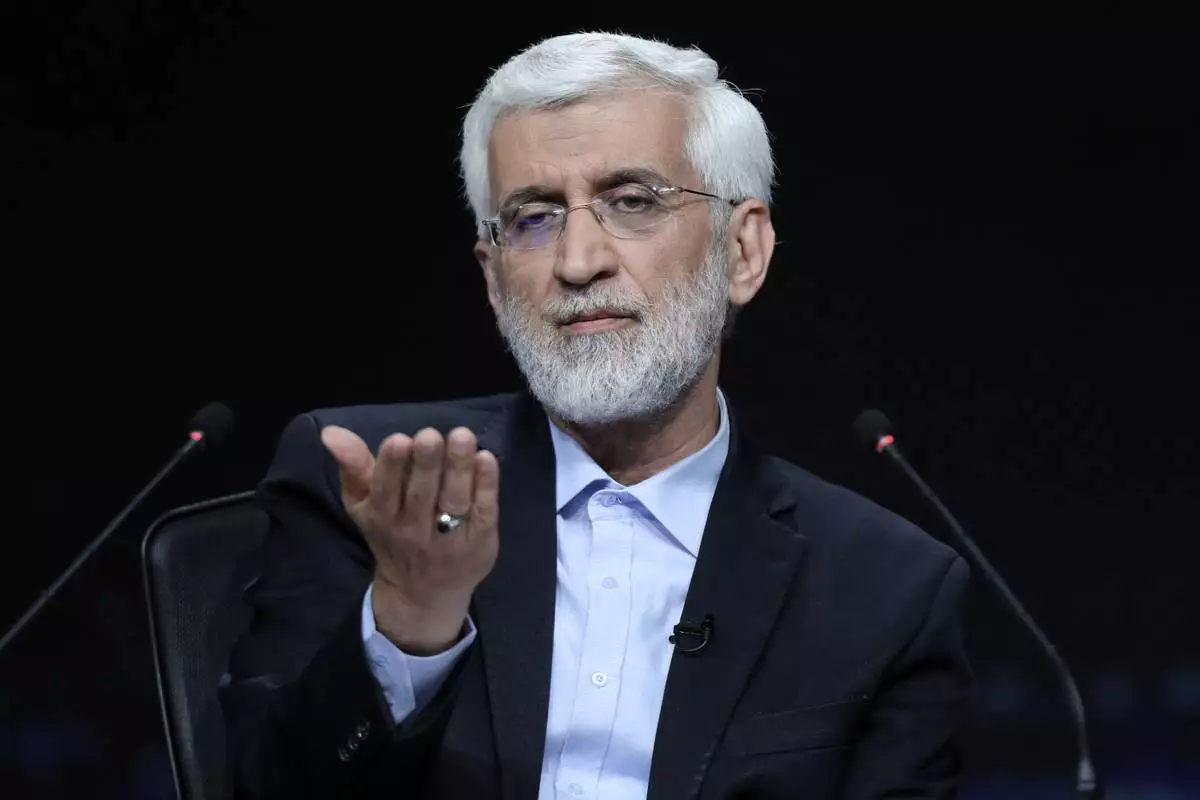
In this photo made available by Iranian state-run TV, IRIB, Iranian presidential candidate Saeed Jalili, a hard-line former nuclear negotiator, speaks during a debate with reformist candidate Masoud Pezeshkian at the TV studio in Tehran, Iran, Monday, July 1, 2024. (Morteza Fakhri Nezhad/IRIB via AP)
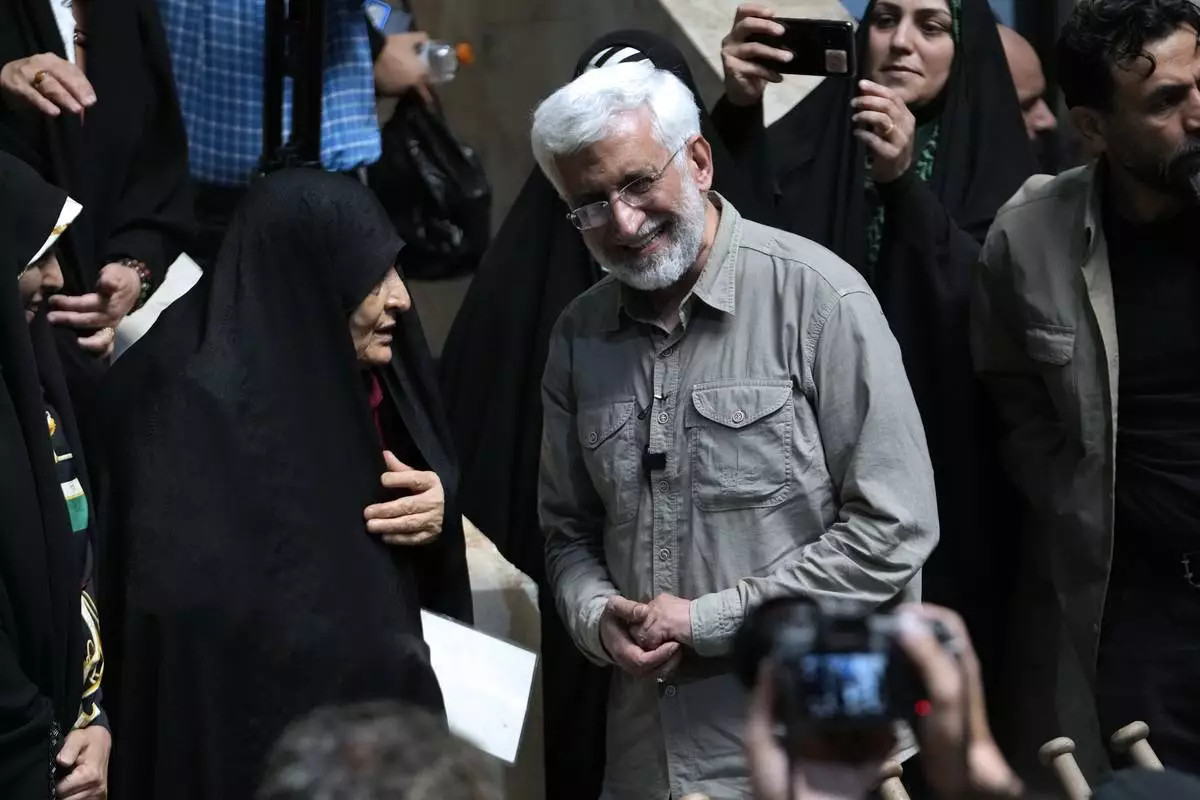
Iranian presidential candidate Saeed Jalili, right, a hard-line former nuclear negotiator, listens to a woman during a campaign stop at a sports hall in Tehran, Iran, Sunday, June 30, 2024. (AP Photo/Vahid Salemi)
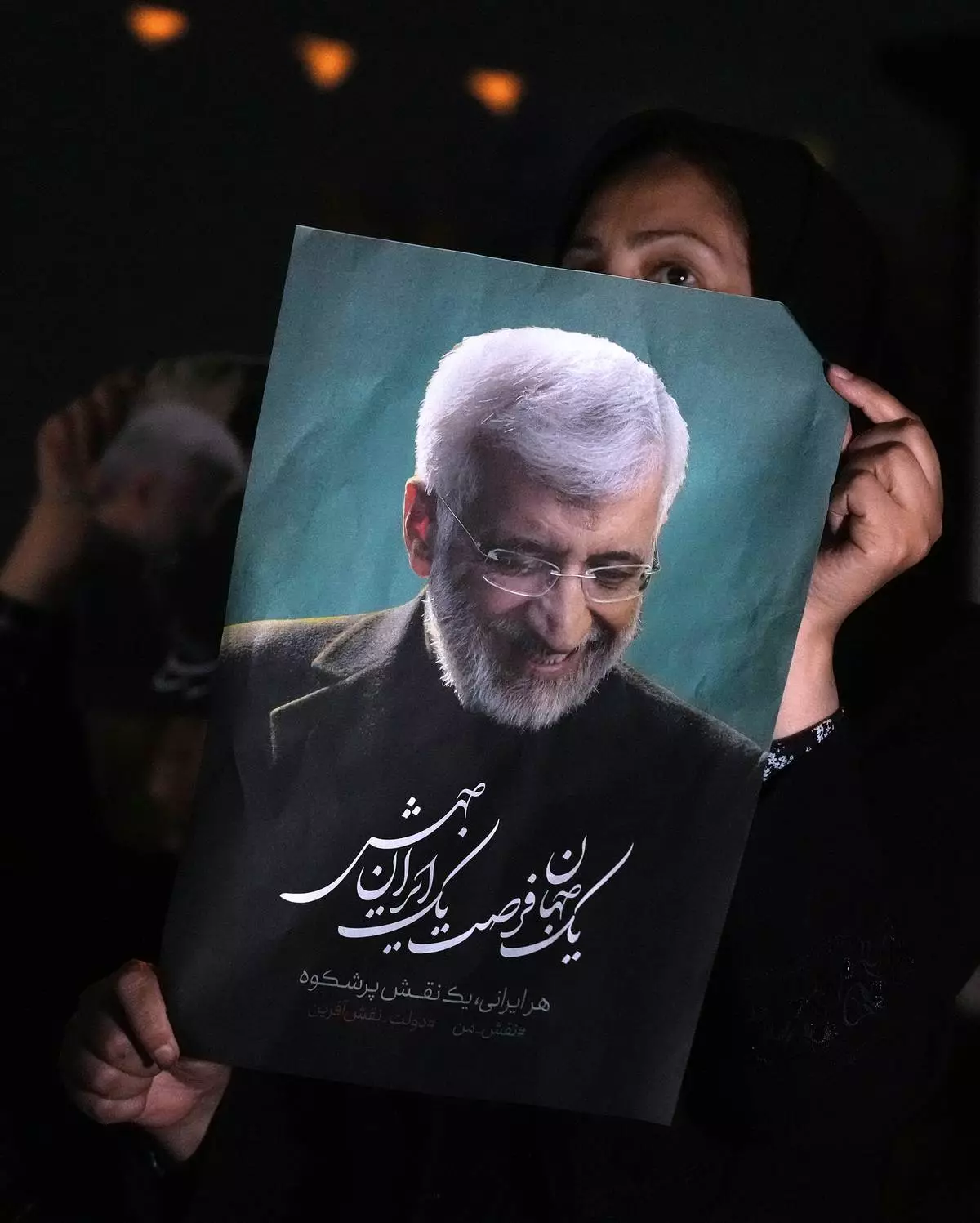
A supporter of Iranian presidential candidate Saeed Jalili holds up a poster of Jalili during his campaign stop in Tehran, Iran, Wednesday, June 26, 2024. (AP Photo/Vahid Salemi)
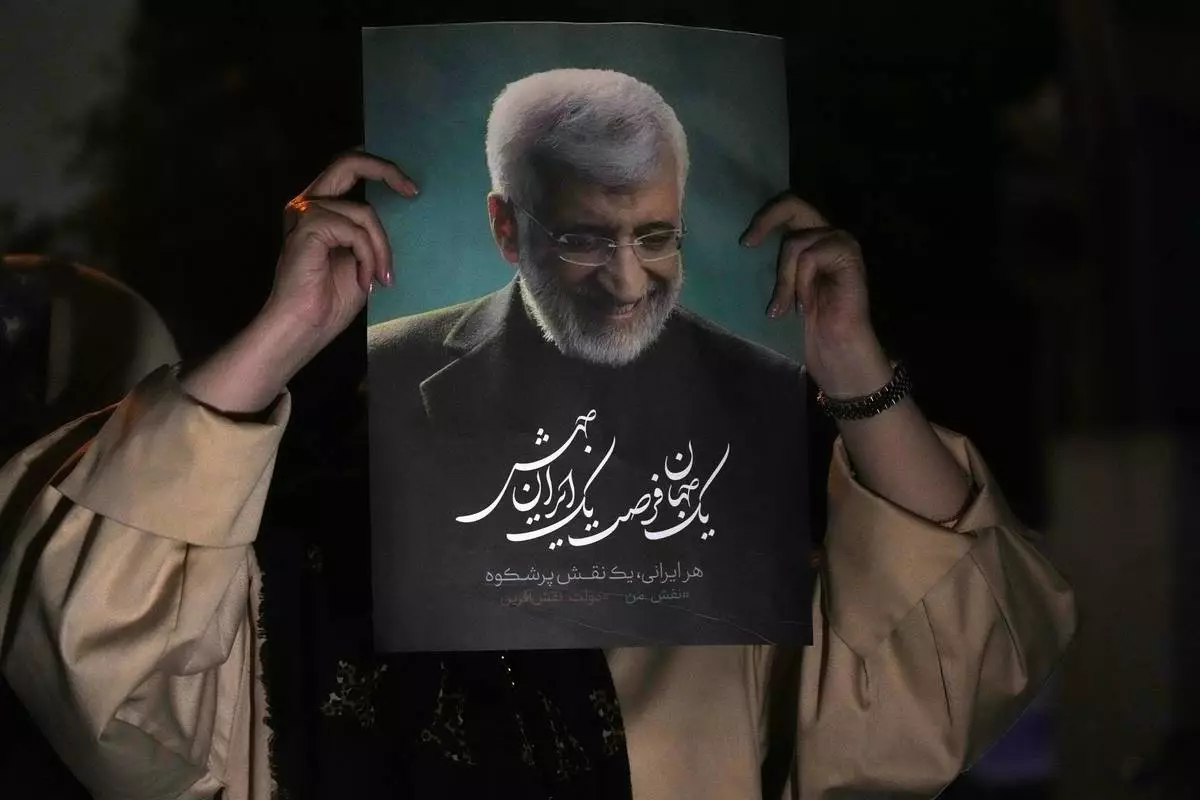
A supporter of Iranian presidential candidate Saeed Jalili holds up a poster of Jalili during his campaign stop in Tehran, Iran, Wednesday, June 26, 2024. (AP Photo/Vahid Salemi)
LONDON (AP) — The Labour Party has won Britain’s general election, bringing a new party to power for the first time in 14 years. But Labour leader Keir Starmer didn't actually become prime minister until a carefully choreographed ceremony on Friday during which King Charles III formally asked him to form a new government.
It’s a moment that embodies the fact that, technically at least, the right to govern in the United Kingdom is still derived from royal authority, centuries after real political power was transferred to elected members of Parliament.
The process is swift, if somewhat brutal for departing prime ministers, like Rishi Sunak. Here's how ceremonial events unfold after an election.
While Britain is a constitutional monarchy where the king’s power is strictly limited by law and tradition, much of what happens here has echoes of the past. In this case, the process harkens back to a time when the king exercised supreme power and chose his preeminent minister — the prime minister — to run his government.
Today, the prime minister is the leader the party that holds a majority in the House of Commons, but technically he or she must still be offered the post by the monarch, said Anna Whitelock, professor of history of the monarchy at London’s City University.
“It reflects our historic past and it reflects the fact that we do have a constitutional monarchy, a parliamentary democracy, and the prime minister and the monarch therefore work hand in glove,’’ she said. “Both of them have a key role in the Constitution. And we see that enacted, on the day where a prime minister formally takes up his position.”
First, the outgoing prime minister — Sunak, in this case — goes to Buckingham Palace to offer his resignation to the king. Then the incoming one — Starmer — arrives for his first audience with Charles.
“There’s a tiny window where between the exiting prime minister, and officially the appointment of the new one, where technically power resides for those few minutes with the monarch,’’ Whitelock said. “So there’s a brief moment where there’s effectively a kind of vacuum in terms of parliamentary democracy. … But, of course, straight away there is that moment where the new prime minister is appointed.’’
That occurs when the prime minister-to-be sweeps into the palace for a ceremony known as the “Kissing of Hands,’’ though no kissing actually occurs. After the king asks the new prime minister to form a government, he bows and shakes Charles’ hand. A photo is snapped to record the moment power is transferred.
Though there’s no record of what is said between monarch and prime minister, dramatic activity swirls outside the palace gates. News helicopters followed Starmer's and Sunak’s cars to the palace. Commentators breathlessly record their progress and speculate about what’s being said behind closed doors.
Traditionally, the new prime minister then leaves the palace in a prime ministerial car and returns to Downing Street to make a statement, receiving the applause of staff members as he enters the famous black door of No. 10 and begins the business of government.
In Britain, the verdict of the voters is delivered swiftly.
After suffering a brutal defeat at the polls, Sunak was forced to vacate the prime minister’s official residence before Starmer's arrival just a few hours later.
Sunak was driven to the palace in a chauffeur-driven ministerial car. But after tendering his resignation, he left in a private vehicle.
The transition is so rapid that the moving van for the exiting leader is usually somewhere near the back door of Downing Street as the new leader takes his bow out front.
The whole royal choreography shows, if nothing else, that the monarchy remains a symbol of stability and continuity at a time when deep divisions in society are driving angry political debate. The king, who stands above the political fray, nonetheless runs the show — albeit ceremonially — and will continue to do so even after this prime minister is gone.
“Everyone will say, ‘Well, this is all the ceremonial bit,’ but it’s a really important part of the fact that governments can change in the U.K., and we don’t do riots,” said George Gross, a royal expert at King’s College London. “Maybe that didn’t need to be said before, but in the context of the current political world and geopolitics, I think that is really healthy.’’
In her 70-year reign, Queen Elizabeth II was served by 15 prime ministers. Charles, who has been on the throne for less than two years, is now greeting his third.
“This is the summit of power,” Gross said. “Ultimately the monarchy is the continuity and prime ministers come and go.”
The king holds weekly meetings with the prime minister to discuss government matters. While the monarch is politically neutral, he still has right to “advise and warn” the prime minister if he believes it’s necessary. These meetings are private and the matters discussed remain confidential.
The king will return to the public stage later this month for his next big royal event: the state opening of Parliament.
Traditionally, the monarch arrives in a horse-drawn carriage, sits on the Sovereign’s Throne in the House of Lords and wears the Imperial State Crown.
Then, during a joint meeting of House of Lords and the House of Commons, he will deliver a speech written for him by the incoming government to lay out its legislative program.
It’s a moment of pageantry, true. But it typifies the role of the monarchy in modern Britain.
This story has been updated to correct that Keir Starmer will be the third prime minister to serve during the King Charles III's reign, not the second.
Associated Press researcher Rhonda Shafner in New York contributed to this report.
Follow AP’s coverage of elections around the world: https://apnews.com/hub/global-elections/
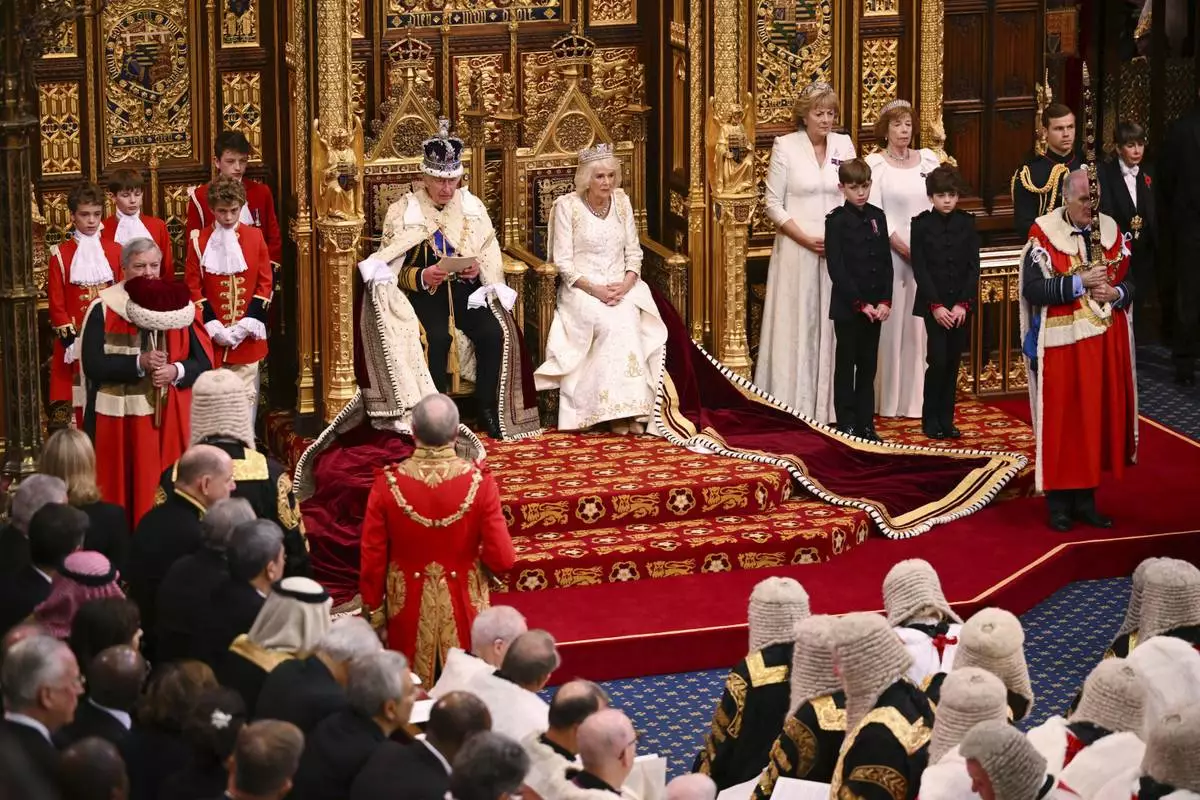
FILE - Britain's King Charles III, center left, next to Queen Camilla, reads out a speech, written by Prime Minister Rishi Sunak's government, outlining its legislative plans, during the State Opening of Parliament at the Houses of Parliament, in London, on Nov. 7, 2023. (Leon Neal/Pool Photo via AP, File)
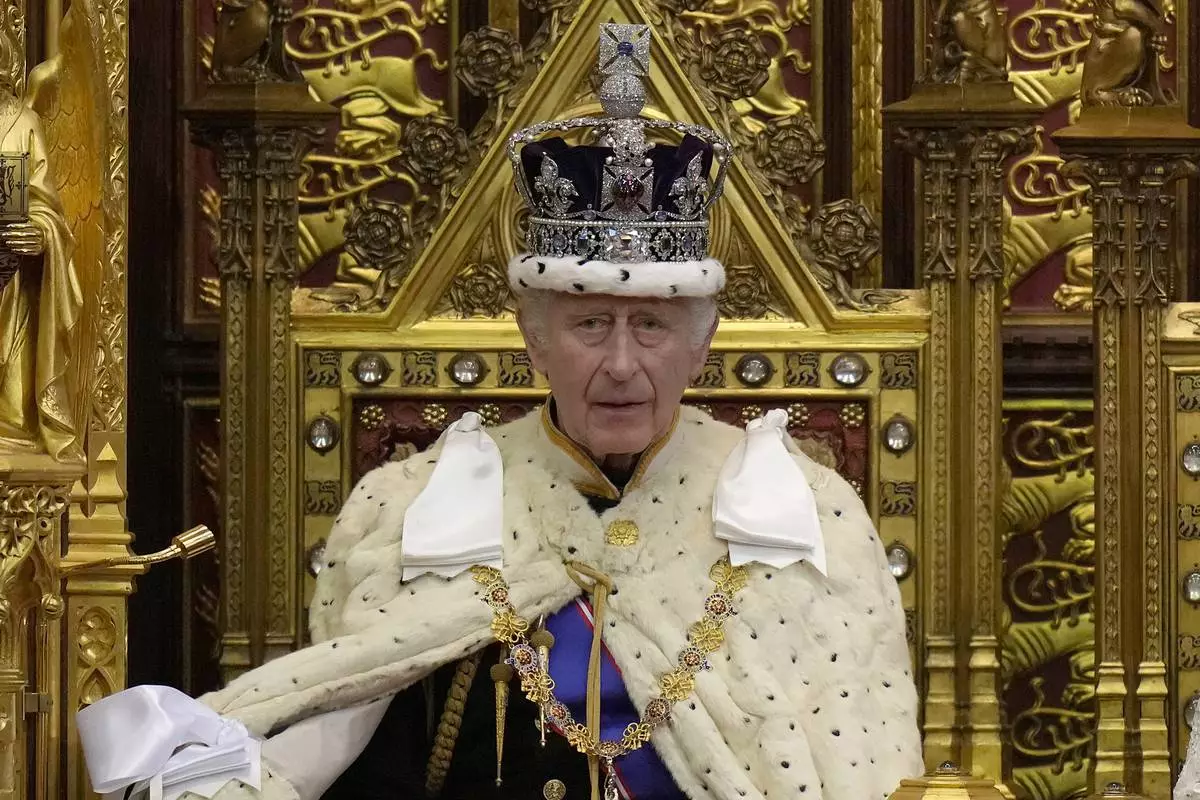
FILE - Britain's King Charles III pauses during the State Opening of Parliament at the Palace of Westminster in London on Nov. 7, 2023. (AP Photo/Alastair Grant, Pool, File)
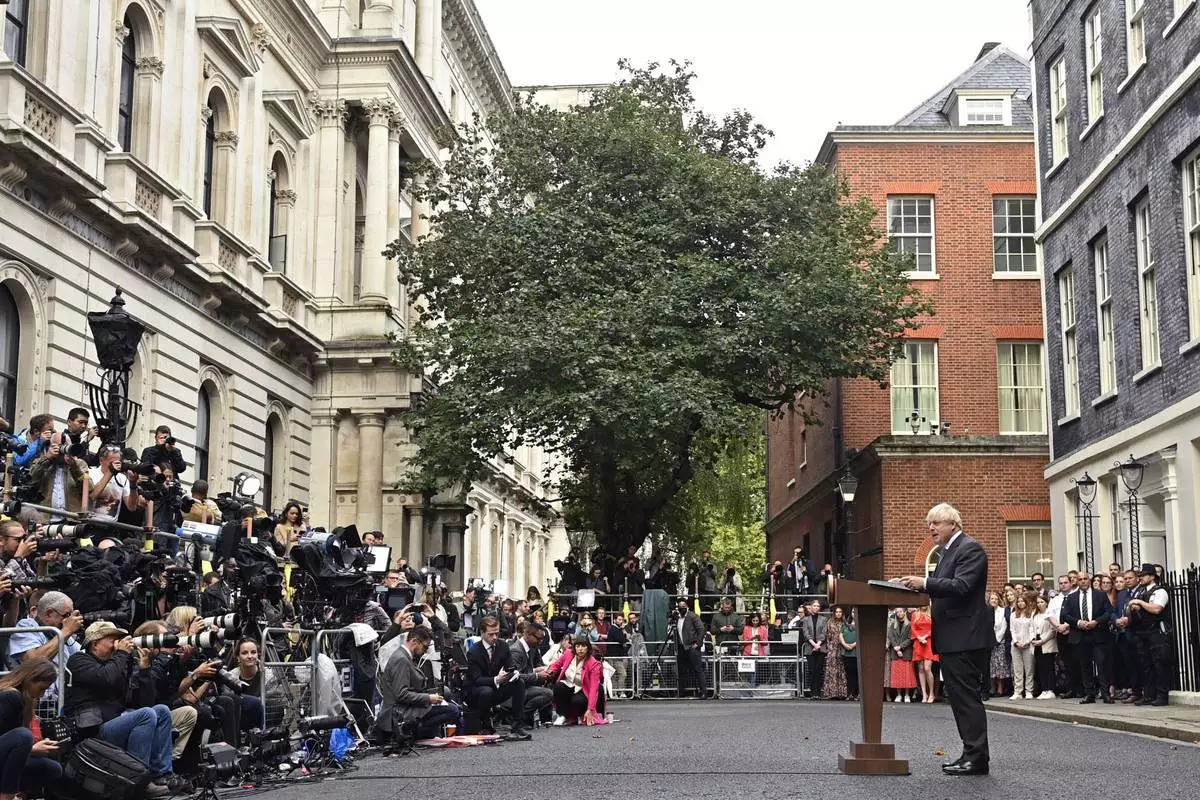
FILE - Outgoing British Prime Minister Boris Johnson speaks outside Downing Street in London, on Sept. 6, 2022, before heading to Balmoral in Scotland, where he will announce his resignation to Britain's Queen Elizabeth II. (Justin Tallis/Pool Photo via AP, File)
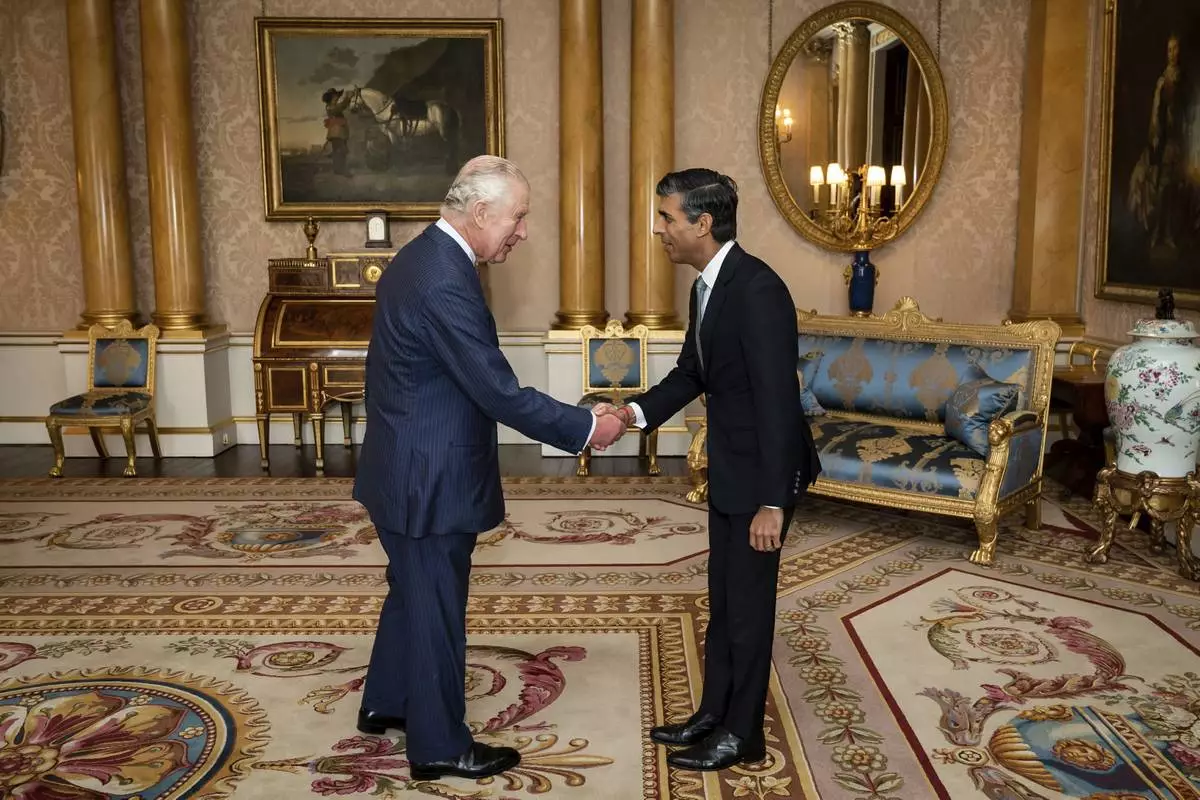
FILE - King Charles III, left, welcomes Rishi Sunak during an audience at Buckingham Palace in London, where he invited the newly elected leader of the Conservative Party to become prime minister and form a new government, Oct. 25, 2022. (Aaron Chown/Pool Photo via AP, file)
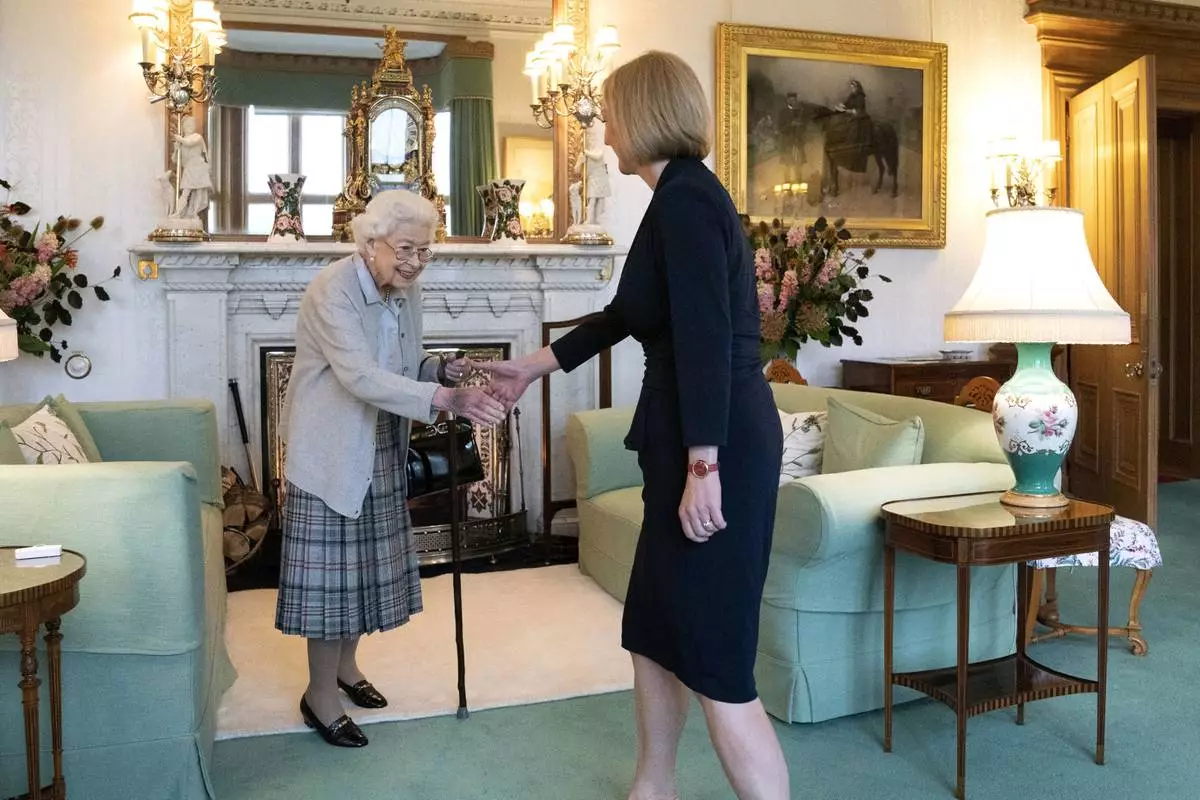
FILE - Britain's Queen Elizabeth II, left, welcomes Liz Truss during an audience at Balmoral, Scotland, where she invited the newly elected leader of the Conservative party to become prime minister and form a new government, on Sept. 6, 2022. (Jane Barlow/Pool Photo via AP, File)
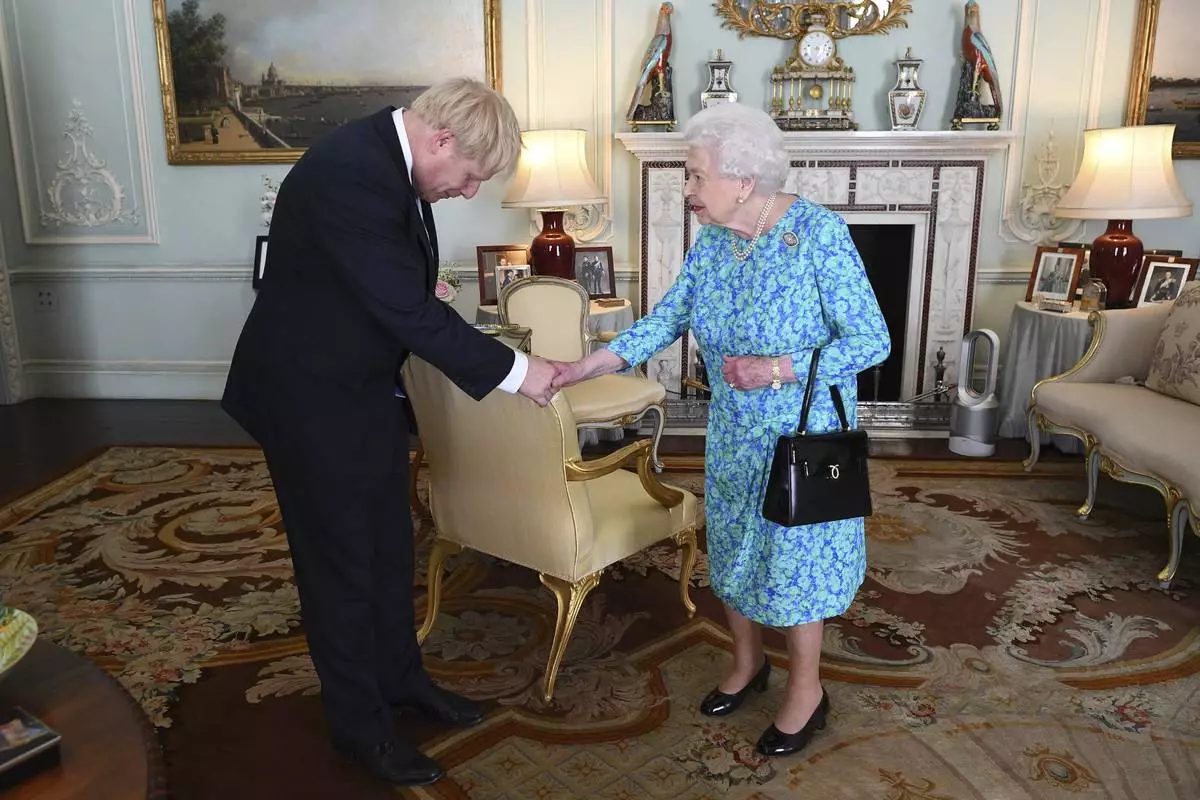
FILE - Britain's Queen Elizabeth II welcomes newly elected leader of the Conservative party Boris Johnson during an audience at Buckingham Palace, London, on July 24, 2019, where she invited him to become prime minister and form a new government. (Victoria Jones/Pool via AP, File)
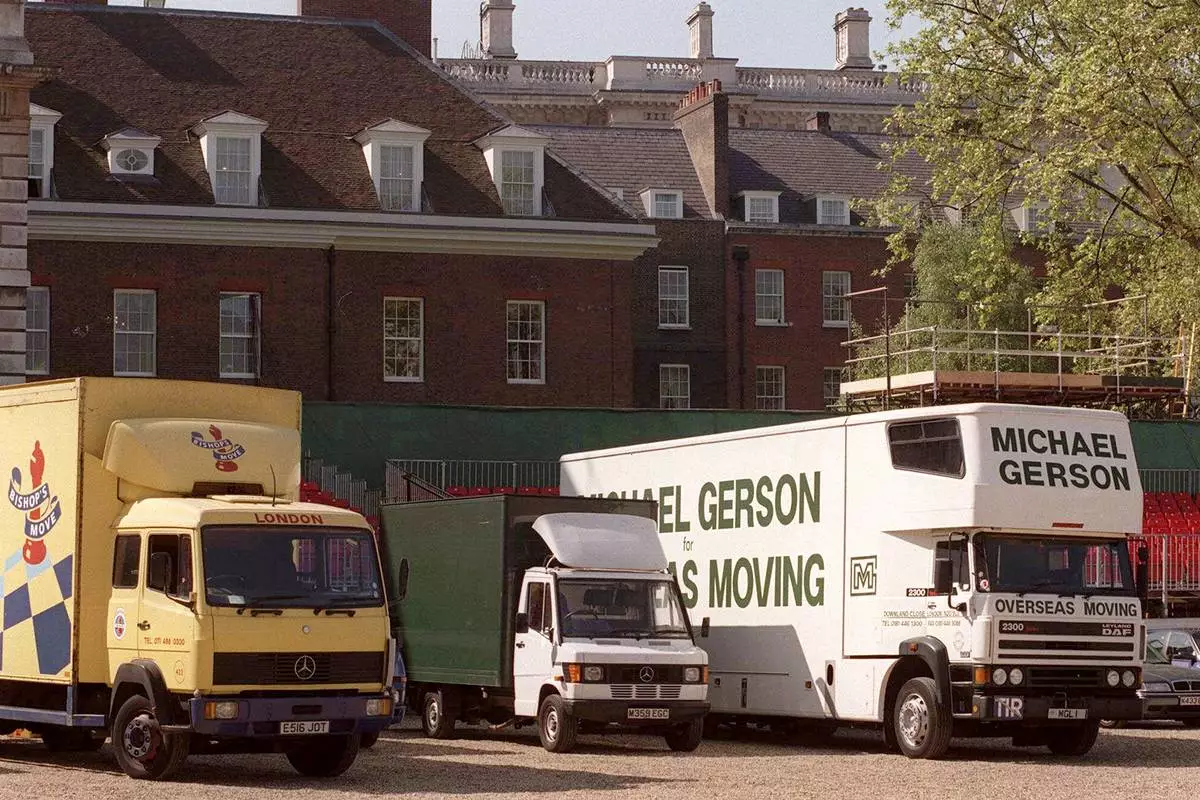
FILE - Removal vans line up at the rear of Downing Street after new Prime Minister Tony Blair replaced outgoing Conservative John Major, in London, on May 2 1997. (AP Photo/Jacqueline Arzt, File)
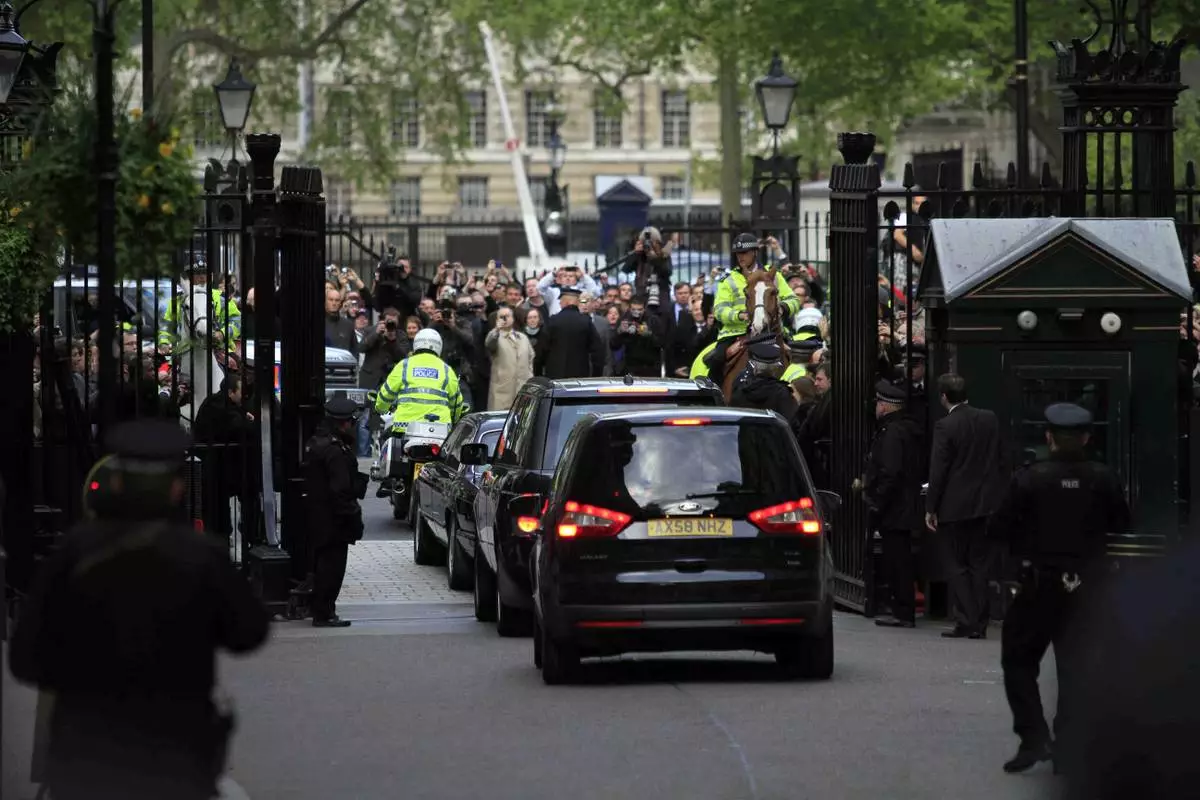
The motorcade carrying Britain's former Prime Minister Gordon Brown, leaves his former official residence at 10 Downing Street in central London, on May 11, 2010. (AP Photo/Lefteris Pitarakis)
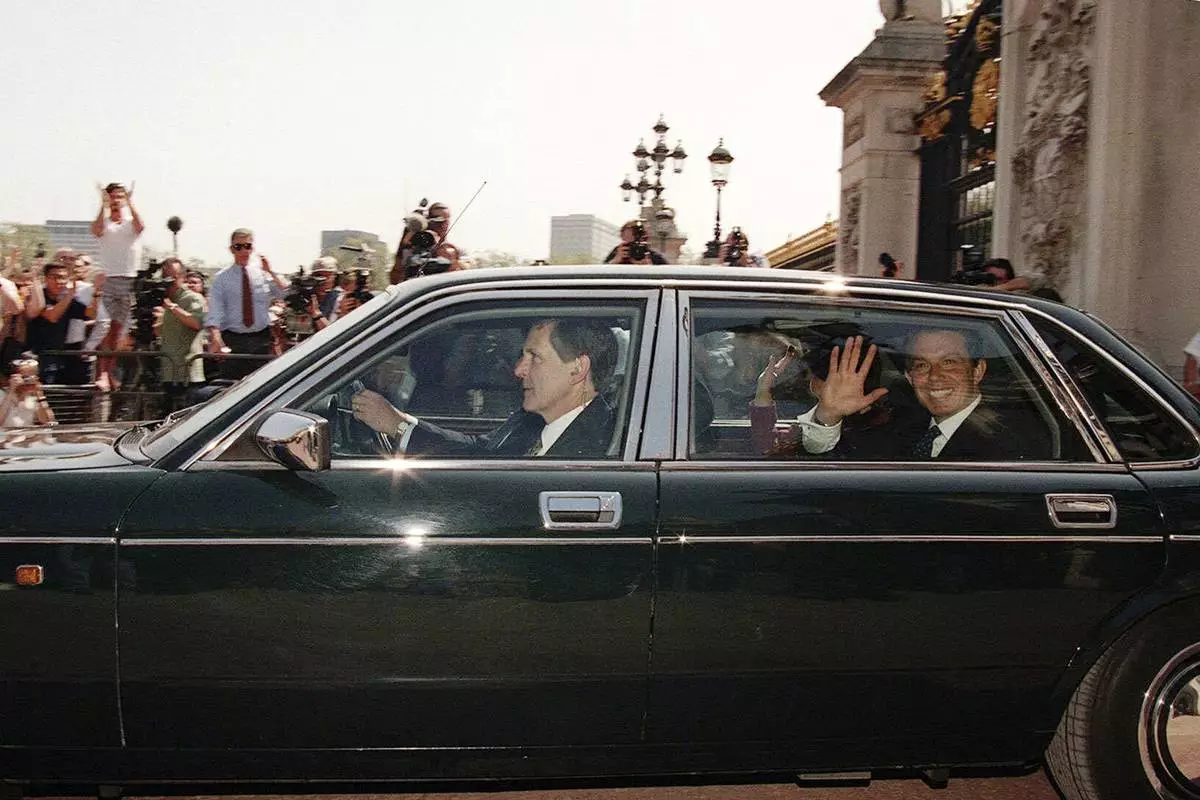
FILE - Britain's new Prime Minister Tony Blair, smiles from the back of his official car as it leaves Buckingham Palace, central London, en route for Downing Street, on May 2, 1997. (AP Photo/Alastair Grant, File)






